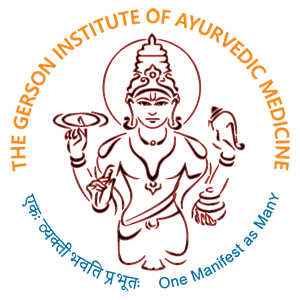The ways of the Universal Spirit are beyond human comprehension. Things continually happen which we label as 'good' or 'bad' and we often wonder how the bad things—particularly the 'very bad' things—are allowed to happen in a world that is supposed to be good and compassionate. The key to life without stress is to disassociate ourselves from the events we observe and associate instead with the observer of everything, The Universal Spirit. The Universal Spirit is the source of everything and is everything. The world we see is an illusion (maya). The things that worry and upset us are only our collective dream. If we can awake nothing of that dream remains.
Read MoreAyurveda is a rational approach to total wholeness which insight-fully utilizes the everyday daily routines of our lives for creating and maintaining health. The classical texts of Ayurveda, some of which have survived to the present day, are encyclopedic in their detail and date back 3000 years, though the oral tradition is shrouded in the midst of an even more distant time. In these texts, insights are given regarding what a human being truly is, what defines health, how illness manifests, and how it can be reversed and prevented. The approach of ayurvedic medicine is strikingly more life and health-oriented than disease and treatment-oriented. It offers humanity a holistic and total view of life and delineates the place of the human race within the entire cosmos.
Read MoreThe practice of Yoga, or unification, re-establishes the connection between the individual and the universal field of pure consciousness. Yoga removes the attachment to external objects and false knowledge and corrects psychological trauma by merging the mind with the real, the virtuous, and the wellspring of harmony.
Read MoreAcute anxiety, borne of fear/desire, falls under the general heading of Unmada ("Insanity") in Ayurvedic medicine. Sushruta describes Unmada as "a derangement of bodily Doshas affecting the upcoursing nerves and thereby producing a distracted state of Manas (mind)."[3] The disease manifests in both physical and mental symptoms which can include:breathlessness, dizziness, faintness, fatigue, palpitations, chest pains, headache, paresthesias, tremors, insomnia, anorexia, nervousness, diarrhea, vomiting, frequent micturition, increased sweating, forgetfulness, amnesia, phobias, incoherent speech, unsteadiness, agitation of the eyes, extreme fickleness of the mind, and mental confusion.
Read MoreAyurveda defines health not only in terms of balanced physiology of the physical body, but also as a state of harmony and contentment in every aspect of life. Thus, not only is it a medical approach to health, but Ayurveda can also be the foundation for the spiritual evolution of humankind.
Read More